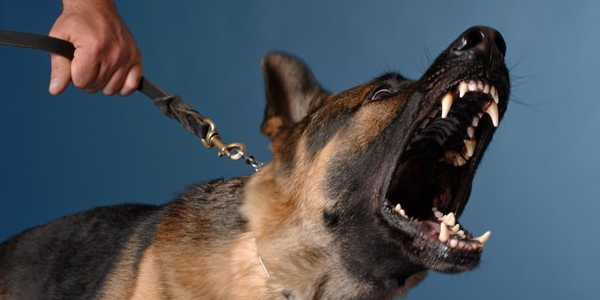Right To Neuter: Are There Behavior Changes When Dogs Are Spayed or Neutered?
Spaying or neutering dogs can cause unexpected and unwanted behavior changes.
According to two large sample investigations, there appear to be some surprising and undesirable behavior changes in dogs who are spayed or neutered.
If you believe many of the websites maintained by a number of humane societies and veterinary groups, spaying, and neutering of dogs seems to be a solution for many behavioral problems. Some of these websites will even talk about "The Responsibility of Spaying and Neutering Dogs."
Right To Neuter: A sample of the statements which I found on these sites include
"Spaying and neutering make pets better, more affectionate companions."
"Your dog should be spayed or neutered because sex hormones lead to unnecessary stress and aggression among dogs."
"Unsterilized animals often exhibit more behavior and temperament problems than do those who have been spayed or neutered."
"Many aggression problems may be avoided by early neutering."
"Female dogs, like males, have an increased risk of aggression if left intact."
"Male dogs display hormonally influenced aggression toward each other. Neutering eliminates much of this behavior."
My interest in the question of possible behavior changes associated with spaying and neutering was rekindled when I had a pair of European visitors who were quite amazed at the number of dogs in North America who were spayed or neutered. According to them the idea that dog should be neutered in order to control certain behavior tendencies seems to be a uniquely North American notion. Apparently, Europeans don't buy into this idea. A Swedish study found that 99 percent of the dogs in their sample were not neutered. A Hungarian study showed 57 percent intact dogs, and a British survey found 46 percent intact dogs. In fact, it is against the law to neuter dogs in Norway unless there is a specific medical reason.
The vast majority of the research done on spaying and neutering has focused on medical issues, such as the reduction of the incidence of certain cancers and hormonally related diseases and canine population control. However, since my interests focus on behavior these gave me little insight. Ultimately my search of the scientific literature uncovered two studies that appeared to be soundly designed, which used a similar methodology, collected data from a large number of dogs, and directly addressed the issue of behavior changes as a result of spaying and neutering. To be honest I found that their results to be surprising and somewhat shocking.
The first of these studies was reported by Deborah Duffy and James Serpell, both at the School of Veterinary Medicine at the University of Pennsylvania. It was published in The Proceedings of the Third International Symposium on Nonsurgical Contraceptive Methods for Pet Population Control*. The second was a master's thesis at Hunter College in New York which was submitted by Parvene Farhoody**. Both of these studies used the Canine Behavioral Assessment and Research Questionnaire (usually abbreviated as the C-BARQ) which was developed by Serpell and his associates. It is a long questionnaire, involving 101 items, and it has been shown to be a valid and reliable way of testing various aspects of canine aggression, fear and anxiety, attachment, excitability, energy level and other factors. It is based on owners directly reporting the occurrence or non-occurrence of specific behaviors in their dogs in a structured way.
The number of dogs tested in these two studies is quite large. The Duffy and Serpell study tested two different samples, one of 1,552 dogs and the other of 3,593 dogs. The Farhoody study tested 10,839 dogs, thus the combined studies provide data on 15,984 dogs in total, making this an amazingly powerful data set.
There are too many measures for me to report in detail, however, the main results were the same across all three samples of dogs. Given that one of the accepted behavioral reasons for spaying and neutering is to reduce aggression, the distressing results of these studies is that spayed and neutered dogs actually show considerably more aggression. Depending upon the specific form of aggression (owner directed, stranger directed etc.) the size of these effects is quite large, varying from a low of around a 20 percent increase to more than double the level of aggression in the neutered dogs as measured by the C-BARQ scoring scale. A further surprise was that these effects were similar for both males and females.One slight difference between males and females is that for male dogs the age at which they are neutered makes no difference in the increase of aggression relative to intact dogs, however, for females early spaying (before the dog is one year of age) causes a considerably larger increase in aggression relative to later spaying.
A different worrisome finding is that there was a roughly 31 percent increase in fearfulness for both sexes. This is accompanied by a 33 percent increase in touch sensitivity. The spayed and neutered dogs also showed a roughly 8 percent increase in excitability. About the only positive effect on behavior that seems to result from spaying and neutering is the roughly 68 percent decrease in urine marking.
I must admit that I was astonished and greatly bothered by the direction of these results. Farhoody summarizes her findings saying "Our data showed that the behavior of neutered dogs was significantly different from that of intact dogs in ways that contradict the prevailing view. Among the findings, neutered dogs were more aggressive, fearful, excitable, and less trainable than intact dogs."
Considering the fact that one of the reasons recommended for spaying and neutering dogs is to correct a range of canine behavior problems, Duffy and Serpell's conclusions expose this to be a myth when they say "For most behaviors, spaying/neutering was associated with worse behavior, contrary to conventional wisdom."
Perhaps on this count the Europeans have it right… and in the UK it is time to think!!!!!!!
References
Deborah L. Duffy and James A. Serpell (2006, November). Non-reproductive effects of spaying and neutering on behavior in dogs. Proceedings of the Third International Symposium on Non-Surgical Contraceptive Methods for Pet Population Control. Alexandria, Virginia.
Parvene Farhoody (2010) Behavioral and Physical Effects of spaying and Neutering Domestic Dogs (Canis familiaris). Masters thesis submitted to and accepted by Hunter College.




